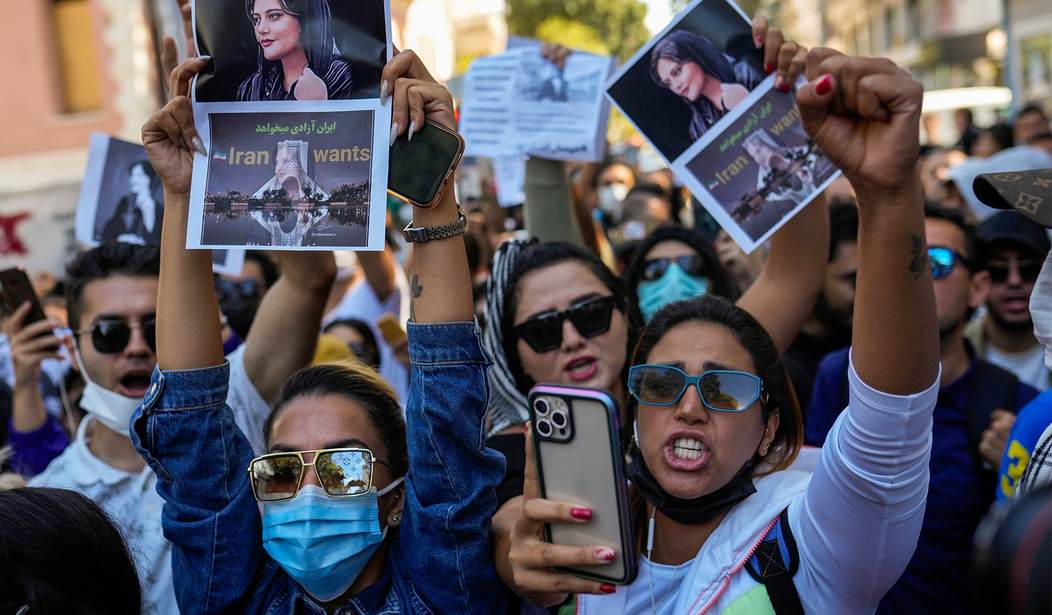Top News
Iran cracking down further on headscarves

Last month, we discussed how the morality police in Iran were making a comeback and shutting down businesses with websites showing female workers in their offices without headscarves. That move generated some renewed protests around the country, but it clearly hasn’t dissuaded the Imams. While they previously closed an office where female workers had their hair uncovered, officials are now warning businesses that they will be shuttered if they even serve any female customers who are uncovered. All of this is happening a little more than a month before the one-year anniversary of the death of Mahsa Amini the custody of the morality police. A new round of protests is anticipated and the situation appears to be reaching a boiling point. (Associated Press)
For months, Iranian authorities did little to enforce the law on women covering their hair but now the country’s theocracy is pushing to make businesses the new battleground over the mandatory headscarf.
The effort comes ahead of the first anniversary of nationwide protests that erupted after the Sept. 16 death of Mahsa Amini in the custody of the country’s morality police. A crackdown by security forces that followed saw more than 530 people killed and over 22,000 arrested.
These days, with uncovered women a common sight on Tehran streets, authorities have begun raiding companies where women employees or customers have been seen without the headscarf, or hijab. Iran’s parliament is discussing a law that would increase punishments on uncovered women and the businesses they frequent.
The government has also begun sending text messages with warnings to women who are seen traveling in cars without a headscarf. How they identify the women and determine their phone numbers in these situations isn’t much of a mystery because Iran offers no personal data privacy in terms of government restrictions. Privacy and Westernized attitudes nearly went extinct following the 1979 Islamic revolution. More than one million text messages have reportedly been sent this year.
President Ebrahim Raisi released a statement yesterday saying that the lack of a hijab “will be definitely put an end to.” This policy is putting women’s lives and health at risk. Raisi ordered hospitals and medical clinics around the country to stop providing services to uncovered women. A bank manager in Damavand was arrested on Monday for providing counter service to a woman without a hijab, so their access to their own funds is being put at risk.
The Iranian government is currently working to put these policies formally into law. The Parliament is drafting a bill that would impose a fine of $720 along with a prison sentence for women arrested for not having a head covering. They are also working on separate legislation that would mandate businesses be segregated by sex, as well as public parks and schools. Further, you can’t just declare that you “identify” as the gender of your choice in Iran. They throw people off the tops of buildings for that sort of thing.
All of this is raising questions about how these policies may impact next year’s parliamentary elections. Women retain the right to vote in Iran, but election officials are allowed to turn away any women who attempt to vote while not complying with the hijab rules. It’s also unclear how fair and accurate the voting process is in the country these days. If the ruling Imams don’t like the outcome of any given race, they might simply declare their preferred candidate the winner anyway.
The Islamic revolution of 1979 was just about the worst thing that ever happened to Iranian women, even if they didn’t fully realize it at the time. Prior to that, many women were quite Westernized, even if they were practicing Muslims. But that all came to an end with the arrival of the new ruling class of Imams. And absent some sort of counterrevolution, that may never change in our lifetimes.
Read the full article here


















